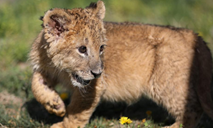Camping with glamour gains increasing popularity among China’s Gen Z
Lin Jing (pseudonym), a camping enthusiast, recently went camping with her friends at a camping site near Hangzhou, capital city of east China’s Zhejiang Province.

People camp in a scenic area in Wuyi County of east China's Zhejiang Province, May 2, 2022. (Photo by Zhang Jiancheng/Xinhua)
“We had a lot of fun on the grass with friends, having a barbecue, and drinking beer amid songs at night while watching the moon and stars. Camping is a way to escape from the hustle and bustle of city life,” Lin said.
Noting that getting close to nature also makes people more prone to open up their hearts and communicate with friends, Lin added that she has made some friends through camping.
Lin is just one example of how young Chinese are getting hooked on camping, a leisure activity that provides a way to better embrace nature. Camping has become an increasingly popular holiday travel option among China’s Gen Z, or people born between 1995 and 2009.
The popularity of camping grew by 303.5 percent in 2020, according to data from Chinese tourism website Qyer.com. Statistics from Xiaohongshu, a lifestyle-focused social media platform that is popular among Chinese youngsters, have shown that the keyword search volume for “camping” surged by 1,116 percent year-on-year during the National Day holiday in 2021.
Besides, nowadays Chinese campers are increasingly adopting the idea of glamping, a portmanteau of “glamorous” and “camping,” which is often used interchangeably with camping in China.
They prefer glamping and camping sites that are more comfortable, and they not only bring tents and sleeping bags, but also other camping-related products, including tent lights and coffee makers, according to an owner of a store selling outdoor goods in southwest China’s Sichuan Province.
Young Chinese campers are typically willing to spend a large amount on camping equipment. Lin revealed that she spent about 4,000 yuan to 5,000 yuan buying camping-related products like tents, sleeping bags and folding chairs. “These are just entry-level products. The equipment of an experienced camper may cost more than 10,000 yuan,” Lin said.
On Chinese e-commerce platform Taobao, the prices of camping-related products such as tents and sleeping bags range from several hundred yuan to several thousand yuan, with prices for some foreign brands reaching about 10,000 yuan.
Deng Li (pseudonym), who started to run a camping business near southwest China’s Chongqing Municipality in 2015, said her camping site is often crowded with campers, over 80 percent of whom are young people, on weekends and holidays.
“The camping industry began to boom in 2020,” Deng said, explaining that the COVID-19 pandemic made young people realize how important family life is as they chose to increasingly embrace nature alongside their family members and friends during holidays.
Her camping site registers a repurchasing rate of 30 percent, with the per customer transaction made by campers averaging about 1,000 yuan. Some of Deng’s frequent returning customers will go camping at her camping site about a dozen times each year.
However, Deng soon found that the facilities at her camping site couldn’t fully meet young campers’ needs. “Young people have higher requirements for camping and have preferences for aesthetics and cool equipment,” she explained.
To cater to the needs of young campers, Deng upgraded the facilities at her camping site, which is now equipped with log cabins, recreational vehicles, wireless speakers, astronomical telescopes and shower rooms, in addition to basic camping-related products such as tents, sleeping bags and barbecues.
The size of China’s camping market increased from 8 billion yuan in 2015 to 43 billion yuan in 2020, registering a compound annual growth rate of about 40 percent, and is expected to reach 150 billion yuan in 2026.
Data from data provider Qichacha has shown that there are currently more than 21,000 enterprises with business activities related to camping sites in China, with 7,933 registered in 2020 and 6,957 registered in the first five months of last year, up 331.6 percent and 286.5 percent, respectively, compared with the period prior.
Photos
Related Stories
Copyright © 2022 People's Daily Online. All Rights Reserved.










